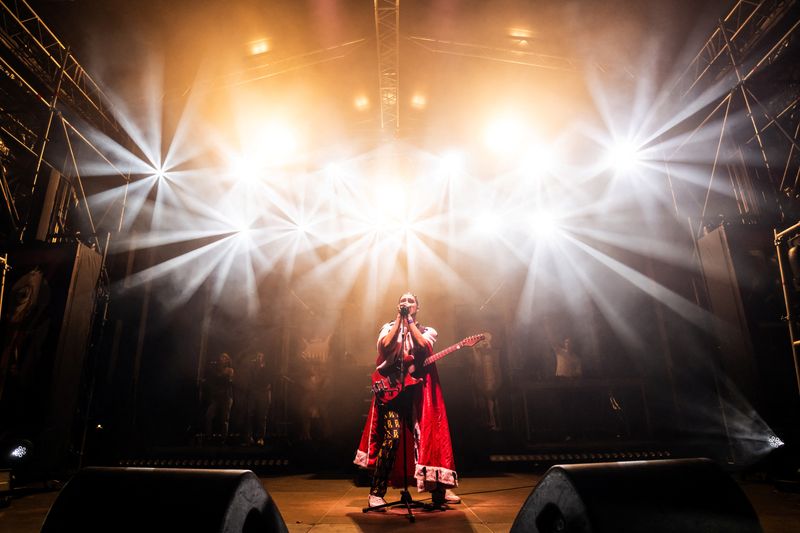Hungarian rappers turn their rhymes on Orban’s government
2024.08.23 13:30
By Anita Komuves and Krisztina Fenyo
BUDAPEST (Reuters) – “Long live the peace mission!” Hungarian rapper De:Nash shouted out sarcastically from a festival stage as he launched into a blistering run of rhymes lambasting oligarchs, corruption and Prime Minister Viktor Orban’s friendly relations with Russia.
The crowd cheered back enthusiastically, enjoying the blast of public political invective in a country governed by Orban and his Fidesz party since 2010.
The blonde-haired rapper’s main target was his prime minister’s July trip to see Russian President Vladimir Putin – a visit described by Orban as a “peace mission” that angered some European Union leaders who warned against appeasing Moscow.
Orban’s government has defended the trip, saying it was an important bid to resolve the conflict in Ukraine. His party remains the dominant force. But voices from more media-savvy opposition parties have been building.
That has been mirrored in popular culture with a wave of rappers who have turned their performances and social media accounts on the state.
De:Nash said he started becoming more political after watching the 2019 European Parliament elections and what he saw as the overly negative, aggressive rhetoric from the government.
“I wanted to highlight how unhealthy and aggressive the messages were that filled the streets. I have been doing the same ever since,” the 28-year-old said.
A year earlier, another rapper known as Krubi shot to fame with a foul-mouthed song that satirically accused Orban of performing a sexual act on one of his predecessors as prime minister, Ferenc Gyurcsany. His suggestion was that though they were officially rivals, they were closely linked, fellow members of the elite.
“I decided not to self-censor. If I have an idea about politics, I’ll put it in the lyrics like anything else,” the 29-year-old said.
‘MANY PEOPLE ARE TIRED’
The government has made few public comments about its musical critics – a Hungarian government spokesperson did not immediately reply to Reuters questions for this article.
Some government supporters and pundits have been critical. The rappers’ tracks are not played on state-owned Petofi Radio, or public TV, said Emilia Barna, a sociologist at Budapest Technical University. Some of the performers also said they had missed out on sponsorship deals and appearances.
“But they do not necessarily need these resources,” Barna told Reuters. Online streaming services and festivals give them all the exposure they need.
It is a striking development, she said, in a country where until recently many musicians relied on generous state-funded arts programmes and events for much of their income.
Four years after Orban came to power, his government launched a state support programme for pop music that “very quickly” made the majority of musicians dependent on the government, Barna said.
In May, 22-year-old rapper Azahriah, held three sold-out concerts in Budapest Arena, the capital’s largest stadium – a first for a Hungarian musician – without any backing or publicity on state media.
Young fans are drawn in by their own frustration with politics, said people in the crowd at De:Nash’s festival appearance in July.

“Many people are tired of this situation, that things are not moving forward,” Marcell Bete, a student of communications and media at Corvinus University, said.
“De:Nash is using humour and music to try and move people out of this state, and this could encourage them to be involved with politics.”








